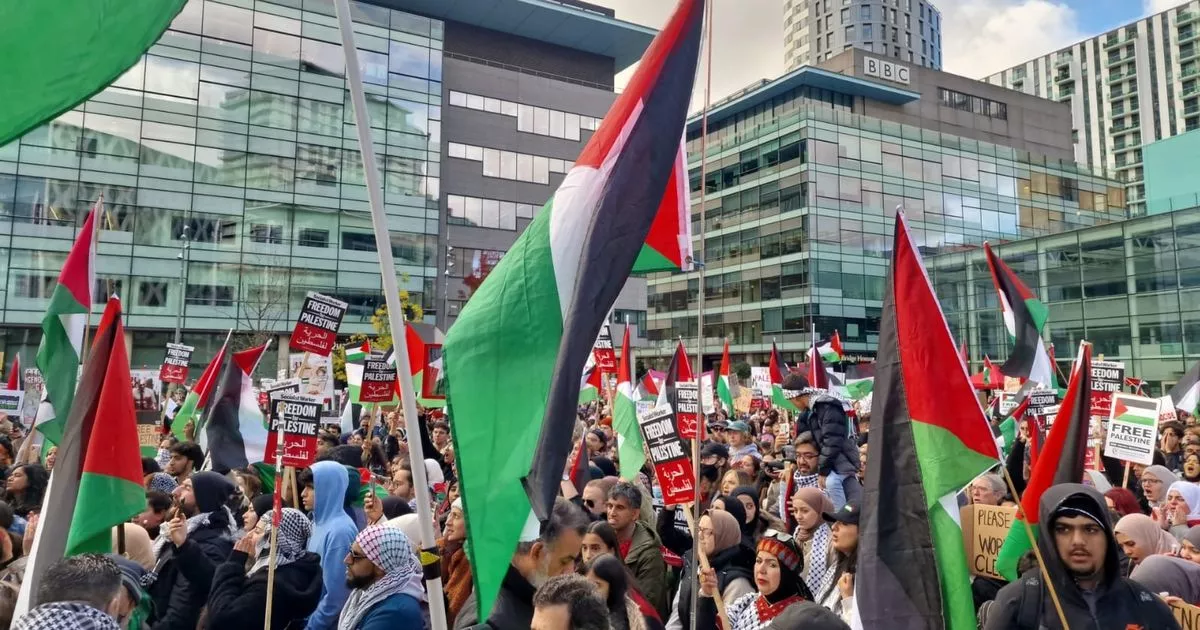RECAP: Thousands of protesters flood MediaCity over BBC Gaza …

BBC decline to respond to protest outside its headquarters in Salford
The M.E.N. approached the BBC for further comment about the protest outside its buildings in MediaCity. The BBC has said it will not be commenting on the protest or adding to its statement. The BBC issued a response on October 16 after it 'received complaints from people who feel that our reporting of the conflict has been biased against Israel, and complaints from those who feel it has been biased against the Palestinians'.
The BBC said: We understand that this is an extremely worrying time for people not only in the region, but also in the UK and around the world, and we have reflected this in our coverage. BBC News has provided our global audiences with coverage and first-hand testimony of the atrocities committed by Hamas, and the suffering in Gaza.
We have made clear the devastating human cost to civilians living in Israel and Gaza, and the unprecedented nature of what has happened. The huge loss of civilian life on both sides makes this a shocking and difficult story to cover. Our correspondents have been to the scenes of attacks, massacres and potential war crimes; and reported on the harrowing scenes they have witnessed.
We have reported on the atrocities committed by Hamas in their assault on Israel and have heard many accounts from survivors of these attacks and family members of the victims, reflecting the trauma they are suffering. On the ground in Gaza our teams have reported on the rising death toll from Israeli air strikes and the unfolding humanitarian crisis, as rockets destroy buildings, power and water supplies are cut and thousands try to move out of the way of danger. We have reflected statements from the UN and NGOs.
We have interviewed representatives of the Israeli government, Hamas and UK government ministers and asked whether international law is being adhered to. BBC News has also examined the history and complexities of the Israel-Palestinian conflict and analysed the potential consequences of the war for the wider region. Our reporting has included opinions from all sides, the region and the wider world.
We have previously covered the escalation in tensions between Israel and the Palestinians, and the reasons for it. Careful consideration has been given to all aspects of our coverage to ensure that we report on developments accurately and with due impartiality in line with the BBC Editorial Guidelines, which are publicly available. The BBC, along with many other UK and global news organisations, does use the word "terrorist", but attributes it.
We have made clear to our audiences that Hamas is proscribed as a terrorist organisation by the UK and other governments. The use of attribution is required by our Editorial Guidelines: https://www.bbc.com/editorialguidelines/guidelines[1]
We know that our audiences turn to us for clarity and to help them separate fact from fake.
We know that trust is earned and we do not take that for granted.
References
- ^ https://www.bbc.com/editorialguidelines/guidelines (www.bbc.com)